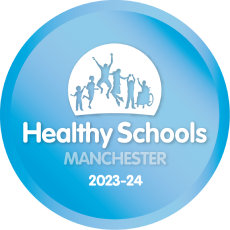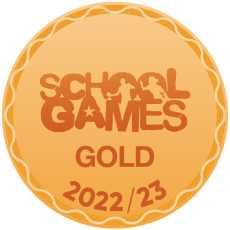Reading Curriculum
“The more that you read, the more things you will know. The more that you learn, the more places you'll go.” Dr Seuss
Reading Curriculum Intent
At St Dunstan’s RC Primary School, we believe that success in reading is the key to independent learning, and so reading is given high priority. Our vision is that we enable our children to become confident, enthusiastic, independent and reflective readers who read with high levels of enjoyment, understanding and comprehension. We believe that ability to read is fundamental to our children succeeding and will enable them to access the next stage of their education and beyond.
Our intent is for all St Dunstan’s pupils to become fluent, skilled and confident readers. This is achieved through the teaching of phonics, following the Little Wandle programme, through explicit teaching and practice of comprehension skills and through engaging texts that interest and inspire children. Children have the chance to engage with a variety of texts such as novels, poetry, picture books, narrative poems and classic stories
Our curriculum has been designed to ensure that pupils not only read for pleasure but to use books to research and gather new knowledge to extend their understanding.
We want to make sure that the teaching of reading focuses on developing the children’s skills in Speaking and Listening, Phonics and Word Reading and Comprehension (both listening and reading) and aim to:
- Provide all children with the skills and strategies to read easily, fluently with good understanding
- Provide all children with the phonological understanding to read words accurately
- Develop the habit of reading widely and often, for both pleasure and information
- Use a growing technical vocabulary with which to engage in ‘book talk’ so children acquire a wide vocabulary, and understanding of grammar and knowledge of linguistic conventions for reading, writing and spoken language
- Ensure all children read widely and experience a range of genres in fiction, non-fiction and poetry and are able to discuss some of the ways in which narratives are constructed.
- Appreciate our rich and varied literary heritage
- Develop critical appreciation of what they read
- Develop skills so that the children can select appropriate fiction and non-fiction books from the library
- Know that reading is an important part of life and that everyone needs to be able to do so
We aim to get children reading early: learning to read – reading to learn. There is a whole school approach to the teaching of reading to teaching phonics and reading. A range of reading strategies will be taught throughout all classes that reflect the requirements of the National Curriculum. We will ensure that all children have equal access to the curriculum, regardless of gender, race, religion or ability. Children with specific reading, speech and language or hearing difficulties will be identified and supported through programmes in school and external help will be sought if necessary
Reading Curricuum Implementation
Foundations for Phonics in Nursery
At St Dunstan’s, we provide a balance of child-led and adult-led experiences for all children that meet the curriculum expectations for ‘Communication and Language’ and ‘Literacy’. These include:
- sharing high-quality stories and poems
- learning a range of nursery rhymes and action rhymes
- activities that develop focused listening and attention, including oral blending
- attention to high-quality language.
We ensure Nursery children are well prepared to begin learning grapheme-phoneme correspondences (GPCs) and blending in Reception.
Reception and KS1 Phonics Lessons
Children in Reception and Year 1 receive a daily 30 minutes phonics lesson. The systematic synthetic phonics programme we have chosen is called Little Wandle: Letters and Sounds Revised.
Children in Reception are taught to read and spell words using Phase 2 and 3 grapheme-phoneme correspondences (GPCs), and words with adjacent consonants (Phase 4) with fluency and accuracy.
Children in Year 1 review Phase 3 and 4 and are taught to read and spell words using Phase 5 GPCs with fluency and accuracy.
Phonics lessons follow a four-part structure:
- Revisit and Review - Children read previously taught GPCs, decodable words and tricky words.
- Teach - Children are taught to read a new GPCs and tricky word.
- Practise - Children practise reading the new GPC in new words.
- Apply - Children learn to spell words and write sentences using the new GPC.
Each Friday, we review the week’s teaching to help the children become fluent readers. Ongoing assessment ensures that targeted keep up sessions can be given to children who need extra support with phonics.
Reception and KS1 Reading Sessions
In addition to a daily phonics lesson, children in Reception and Year 1 also receive guided reading sessions three times a week. During the session, children will read a book containing the GPCs they have learnt to an adult. The reading sessions follow a three-part structure:
- Decode - The children decode the text by applying the skills that they have practised in phonics lessons.
- Prosody - The children read the book with more fluency and a focus on developing meaning, intonation and expression.
- Comprehension - The children are taught to understand the text.
At the end of the week, children take the same book they have read in school home with them to share with parents and carers. These books are closely matched to each child’s phonics ability and are closely monitored to ensure that children are reading books of an appropriate level.
In Year 2 and into KS2, we continue to teach reading in this way to any children who still need to practise reading with decodable books.
KS2
At St Dunstan’s, we have chosen to adopt Ashley Booth’s guided reading scheme for our Key Stage 2 children. This provides children with wide ranging opportunities to read and enjoy high quality fiction, poetry and non-fiction texts.
During whole class guided reading sessions, children work to develop and hone their key reading skills: decoding, vocabulary, inference, prediction, explanation, retrieval and summarising.
Children also continue to develop their reading fluency and pace, building upon their phonic knowledge and skills.
We recognise the importance of developing a rich and extensive bank of vocabulary; therefore, we discreetly teach vocabulary directly linked to the text during every phonics and guided reading session. This is reinforced daily during sessions, ensuring new vocabulary is embedded.
One of core beliefs as a school is that all children should experience the pleasure of being read to. Each teacher will select a book and read it aloud to their class each day, bringing the book to life through their expert and engaging delivery. We believe that all adults are role models who can excite, engage and inspire children to read for pleasure.
 St Dunstan's School
St Dunstan's School





